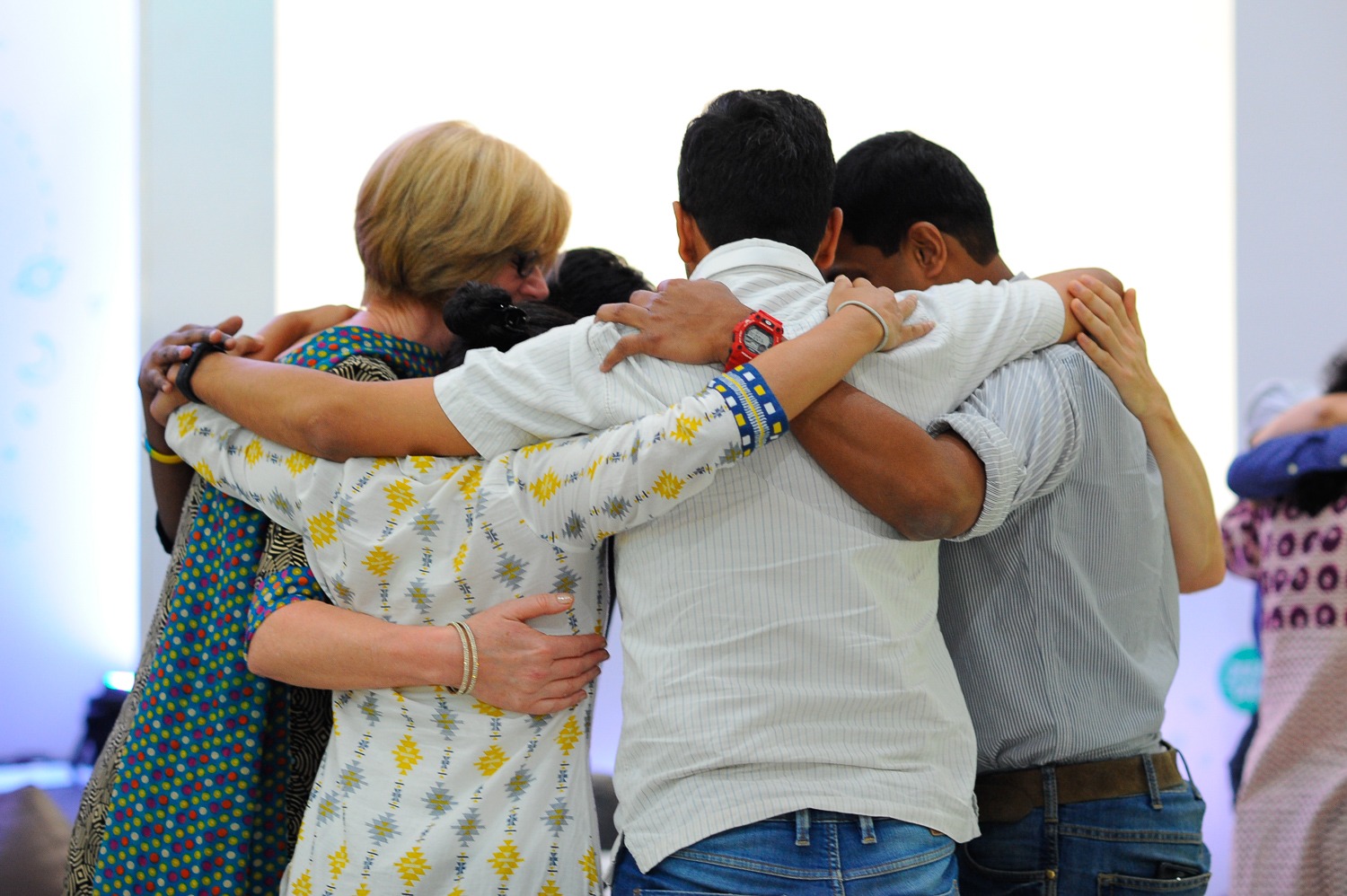Maybe they exist because we love how our sound resonates within them,
How an unspoken trust is transferred through nods and smiles,
How they make us feel safe,
How they mirror the sensation of looking into multiple mirrors,
And who doesn’t enjoy gazing at their own reflections?
Maybe they exist because we truly believe this is how the world is,
A giant echo chamber of echo chambers.
Maybe there’s a genuine value in seeking out
people who look, talk, and think like us.
But what if we broke one open to experiment?
What if we invited –
Someone we have never invited before,
Someone who never got a seat at the table,
Someone who might disagree with us,
Someone who might not understand us,
Someone who we might not understand?
What would happen?
Would we face breakdowns or breakthroughs?
Could we have more meaningful conversations that don’t feel like monologues?
Might we experience an epiphany of some sort?
What would it really take to allow people who aren’t alike,
and maybe don’t even like each other,
To get into a room,
And start listening to one another,
Rather than yearning to hear the echoes of their own voices…
Have you ever noticed that the education space in our country is one of those giant echo chambers? The dominant voices rarely include the voices of young people or people with disabilities or any marginalised groups in their discourse and decision making.
Let me share a parallel from the field of deaf education, where I’ve spent the last decade understanding how these echo chambers often become mediums for injustice. In 1880, the International Convention of Educators of the Deaf (ICED) held a conference in Milan, Italy. Out of 164 delegates, only three were deaf. This conference declared the superiority of speech over sign language and passed a resolution to ban sign language. The welcome note for the 2025 ICED in Italy acknowledges that the banning of sign language in educational programs for deaf children led to widespread deprivation of quality education and equality for deaf individuals globally. (ICED 2025) This serves as a stark reminder of how echo chambers can be extremely dangerous, especially when those within them hold enormous power to make decisions affecting the unrepresented communities.
However, the truth about the devastating impact never really reached the hearing people like me until recently, because let’s face it, we live in completely different worlds. In 2011, I found myself clueless on how to communicate with three deaf kids at a home for street children where I was working. I started learning Indian Sign Language (ISL) , which allowed me to have in-depth conversations with deaf people who I would have never met otherwise. I was privileged to receive their unique insights based on their lived experience. This broke the echo-chamber I was in, and changed my worldview. It wasn’t a one time thing, it happened multiple times through dialogues, stories and experiences. I realised how the people in the system were completely oblivious to the abuse and oppression on the ground, just because they couldn’t listen to the deaf people themselves.
Once I saw how damaging echo-chambers could be, I couldn’t unsee it. I just started seeing the parallels in education spaces, development spaces and even in disability spaces. This journey of going in and out of echo-chambers, challenging some of them, changing a few of them and just accepting the others. Sometimes all it took was a question or a comment, a slight nudge that made people think and take a step towards inclusion. At other times, it took years of advocacy especially when it came to changes in the system.
This helped me reflect more deeply about how breaking the echo chambers is often the first step to inclusion. And it goes beyond just being in the same room or at the same table, it means sharing the power to shape the narratives. There’s a beautiful central idea to the disability justice movement ‘Nothing about us, without us’, which can be very well expanded to the inclusion of diverse voices. Today I try to intentionally include the voices of the young people in all decision making platforms, on how the education system needs to shift for them to thrive. We have been assuming that we know what’s best for them all along, but maybe we don’t.
Could each of us create some inclusive spaces, where the representation goes beyond ticking boxes and involves a real shift in power, giving an actual say to all those affected? What a wonderful world we might create, if we truly shatter the echo-chambers in our minds, hearts and physical spaces to include the voices we have never heard before!
About the Author:
Pallavi Kulshrestha leads the National Partnerships at Dream A Dream. In her 15 years of experience, she has worked in diverse roles focusing on education, teacher training, child rights, policy, advocacy, and disability inclusive practices. Her educational background includes Engineering, Special Education, Psychology, and International Humanitarian Law. She is currently pursuing a Ph.D. in Psychology.


